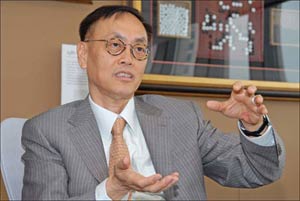Guangdong to use index to gauge happiness
Updated: 2011-10-12 07:24
By li Wenfang (China Daily)
|
|||||||||
GUANGZHOU - Guangdong officials have issued a happiness index system to guide various governments to help people feel more content.
The system is meant to lead to a better understanding of what constitutes happiness, build a healthy social mentality and provide rational expectations for life, said Xu Jianhua, director of the provincial development and reform commission, at a news conference on Tuesday. It is the first of its kind to be adopted by a provincial government.Recognizing the complexity involved in measuring the feeling of happiness, Xu said the province's system consists of both objective and subjective indices.
The objective indices look at residents' employment and incomes, educations and culture, medical care and health, consumption and housing, and the social services they can take advantage of.
The subjective indices look at how residents feel about their personal development, quality of life and spiritual life.
The indices are to be calculated using a survey of 6,900 people who are between the ages of 16 and 65 and have lived in the province for at least a year.
The happiness index will be taken into account when assessing the performance of government officials, Xu said, adding that the index for 2010 will be issued by the end of this year.
The presence of indices on social safety, the protection of rights and interests, and cultural events is mainly what makes Guangdong's system different from the systems used in other places, Xu said.
Although statistical methods exist for most of the objective indices, calculating systems have yet to be built for some indices, said Xing Xiaowei, director of the provincial statistics bureau.
Figures dealing with garbage treatment rates, for example, are not available at and below county and township levels. Meanwhile, government-subsidized housing, the subject of another index, was not carried out on a large scale until this year, Xing said.
"This system deals with the biggest issues in China's economic transformation, such as wealth differences and related social conflicts," said Ni Xing, a professor with the Guangzhou-based Sun Yat-sen University's China public administration research center.
In applying the system, Ni suggested that the government identify the needs of different sorts of people and be aware of whether the public can express its desires unimpeded.
Ni said the system will not have the desired effects unless the public and society participate in it.
Tan Xuezhen contributed to this story.









